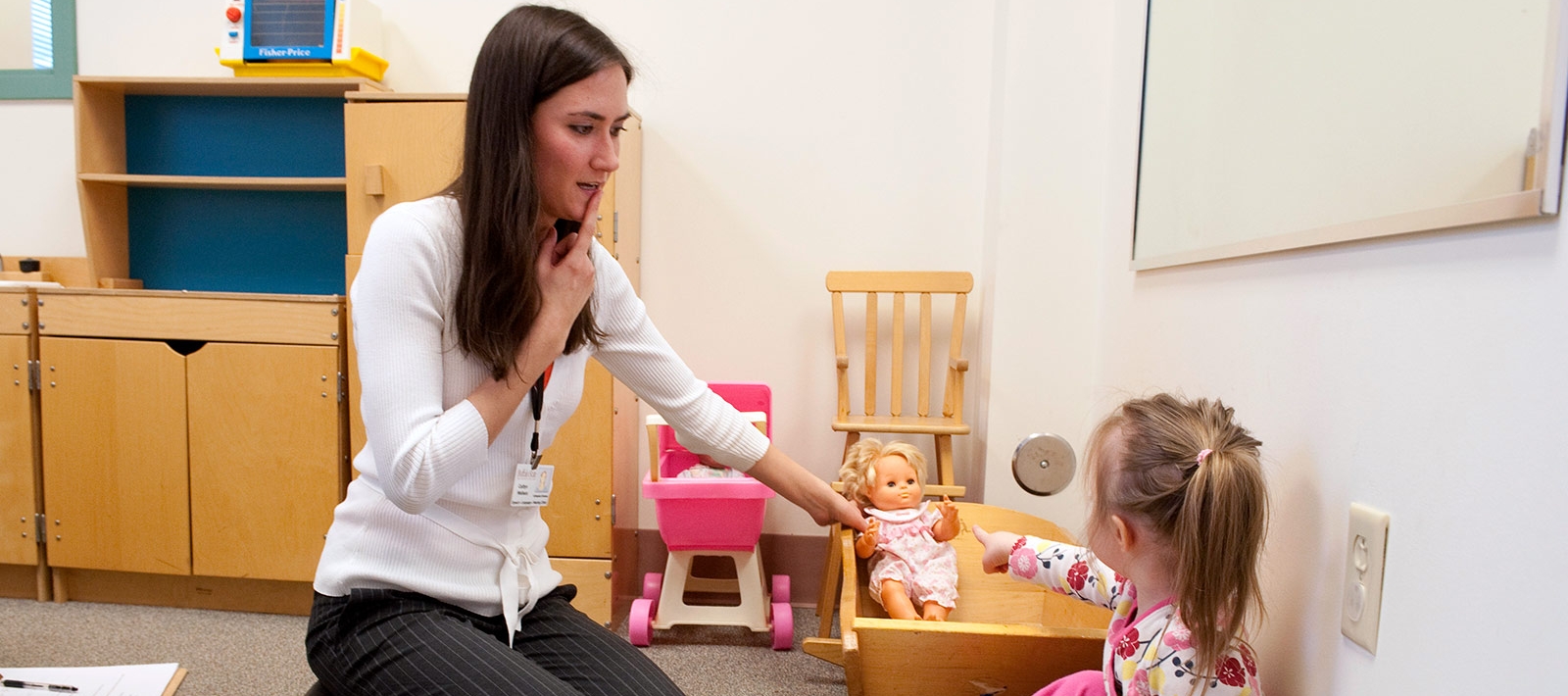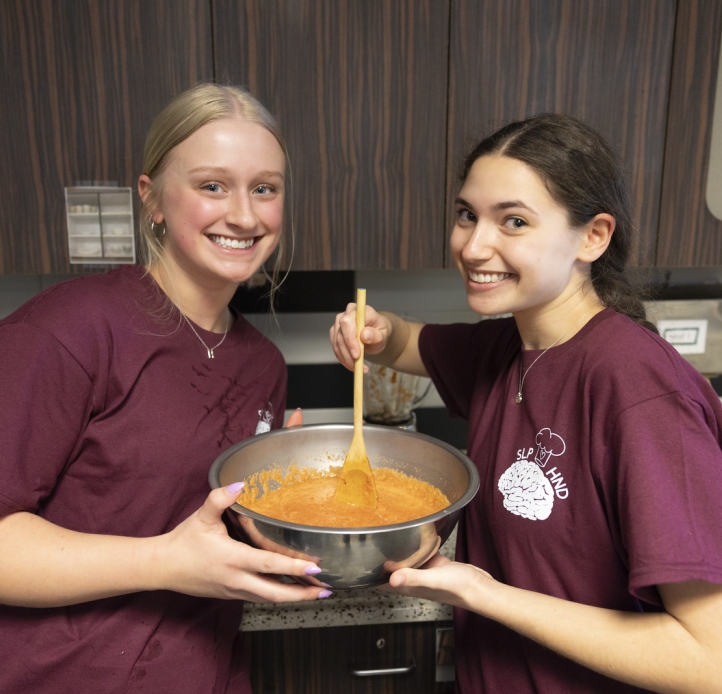
Buffalo State speech-language pathology students are educated to assess and treat the disorders of speech, language, swallowing, and hearing. Our comprehensive undergraduate program prepares students to apply for the master's degree necessary to practice speech-language pathology. Our nationally recognized master’s program prepares students for rewarding careers as speech-language pathologists in varied clinical settings.
Degrees Offered
Speech-Language Pathology, B.S.: provides students with an introduction to the field of speech-language pathology and a strong foundation in the typical processes involved in speech, language, swallowing, hearing, and communication. Our curriculum ensures that students complete all prerequisite courses for graduate study.
Speech-Language Pathology, M.S. Ed.: students who complete this degree are eligible to apply for three credentials: New York State teaching certificate as a Teacher of Students with Speech and Language Disorders (TSSLD); New York State licensure; and ASHA’s Certificate of Clinical Competence.
100%
Employment rate prior to/within months of graduation for Buffalo State SLP M.S.Ed. for graduates seeking employment
13,700
Annual job openings for SLPs
18%
Expected job growth rate for SLPs from 2023-2033 (much faster than average)
#3
SLP’s U.S. News and World Report ranking for Best Health Care Jobs (based on salary, availability, and work-life balance)
Who Hires Our Students





A speech-language pathologist (SLP) is part scientist, part teacher, and part therapist. As a result, there are countless career opportunities. As an SLP, you might:
- Evaluate, diagnose, and treat speech, language, communication, and swallowing disorders
- Provide training and education to family/caregivers of those with communication disorders
- Work collaboratively with professionals from other disciplines
- Own and operate a private SLP practice
- Work for national, state, or local associations or agencies
- Supervise and direct public school or clinical programs
- Engage in research to enhance knowledge about human communication processes
- Develop assessment and treatment methods for human communication disorders
- Provide counseling and consultative services
- Train and supervise support personnel
Prepare future professionals in colleges and universities
Yes! It is worth noting that although most SLP undergraduate students go on to pursue a master’s degree so that they can become a licensed and certified SLP, some students opt to pursue other careers, usually in the areas of science, sociology, communication, or education, such as:
- Occupational Therapist
- Art/Music/Dance Therapist
- Recreation Therapist
- School Guidance Counselor
- College Student Affairs Professional
- Probation/Parole Officer
- Literacy specialist
- Mental Health Counselor
- Vocational Rehabilitation Counselor
National Student Speech-Language Hearing Association (NSSLHA) and National Black Association of Speech-Language and Hearing (NBASLH): great resources for students entering, or currently in, the field of communication sciences and disorders. The Buffalo State chapters meet monthly to discuss graduate school preparation, career development, and volunteer and fundraising efforts. Students may also have the opportunity to participate in workshops, lectures, meetings, and conventions.
Undergraduate students are highly encouraged to pursue and participate in faculty research opportunities. Internship opportunities are also available in the Buffalo State University Speech-Language-Hearing Clinic.
Our graduate students begin applied clinical practicum experience in their first semester and are enrolled in clinical coursework in every subsequent semester, both in our active and highly regarded on-site clinic and in our community-partner externship sites. A graduate assistantship is also available for first-year graduate students.
The Buffalo State University Speech-Language-Hearing Clinic is a teaching program. Clinical services, including speech-language-hearing and swallowing screenings, evaluations, and treatment, are provided by graduate students pursuing their master's degree in speech-language pathology under the direct supervision of clinical faculty who are licensed by New York State and hold the ASHA Certificate of Clinical Competence (CCC).
The Speech-Language-Hearing Clinic provides services for individuals ranging in age from ~2 to 80+ years old who present with many types of delays, deficits, or disorders of communication or swallowing. Services to screen, evaluate, and treat may target:
- Articulation and Phonological Disorders
- Verbal and written language impairments in children and adults
- Social aspects of communication (i.e., pragmatic) disorders
- Aphasia
- Cognitive-communication disorders
- Voice and/or resonance disorders
- Hearing and auditory processing disorders
- Stuttering and Cluttering
- Traumatic brain injury
- Motor speech disorders
- Swallowing Disorders
Buffalo State supervisors and graduate students also provide services to the WNY community at St. Joseph University School, Elmwood Franklin School, and People Inc.
Speech-Language-Hearing Clinic
This on-campus clinic, which celebrated its 60th anniversary in 2016, enables students to gain real-life experience helping community members under faculty supervision.
Award-Winning Faculty
The majority of SLP faculty members hold the Certificate of Clinical Competence awarded by the American Speech-Language-Hearing Association and have contributed to countless research studies, textbooks, and journals about disorders, diagnoses, and treatments.
We're Accredited
The Master of Science in Education (M.S. Ed.) education program in speech-language pathology (residential) is accredited by the Council on Academic Accreditation in Audiology and Speech-Language Pathology of the American Speech-Language-Hearing Association through 2031.


